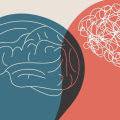After becoming a licensed mental health counselor, you can work in hospitals, schools, mental health centers, government agencies, and even open your own private practice. The areas with the highest employment rates included outpatient mental health and substance abuse centers, individual and family services, and hospitals (state, local and private). Now, let's focus on the current landscape. Today, mental health counselors are finding employment in a growing range of settings.
Private practice, while a desirable option, is just one of many possibilities. Depending on your passions and areas of expertise, you could work in community agencies, hospitals and other healthcare organizations, public or private schools and universities, assisted living centers, and the list goes on. Mental health counselors may be referred to as licensed mental health counselors (LMHC), licensed clinical professional mental health counselor (LPCC), or licensed professional counselor (LPC). Some mental health counselors choose to work with specific populations, such as children, seniors, or college students.
Whether your goal is to better understand your own behaviors, become a better spouse or parent, or feel more motivated to achieve your goals, consulting a mental health professional can help. If you're curious about what a mental health counselor can do for you or are thinking about entering this profession yourself, there are some important things to know. As a school adjustment counselor, you'll work in a school environment to address the mental health needs of children, adolescents and young adults. To become a certified mental health counselor, you must meet the licensing requirements set by your state.
Mental health counselors represent just a profession that works specifically with people dealing with cognitive, behavioral, and emotional problems. The functions of a mental health counselor may vary depending on their specific career path, but generally include helping patients overcome problems such as depression, anger management, suicidal thoughts, parenting, aging, relationship problems, stress, addiction and self-image. If you're interested in becoming a mental health counselor, it's important to consider both the potential benefits of the career and some of the potential drawbacks. We've listed the popular jobs licensed mental health counselors have and what you can expect to do in these positions.
Many mental health counselors start by earning a bachelor's degree in a human services field, such as psychology, sociology, or social work. Take the next step to becoming a counselor and earn your master's degree in counseling for mental health and well-being online. A mental health counselor is a professional who uses a variety of psychotherapy methods and techniques to help people suffering from psychological distress.
Mental health counseling
is only one professional option in this area, and you may want to consider related careers, such as a social worker, clinical psychologist, marriage and family therapist, or counseling psychologist.Sometimes it can be confusing to determine what kind of help you need, especially because there are many different types of professionals who specialize in treating mental health problems. Mental health counselors can receive third-party reimbursement for the diagnosis, evaluation and treatment of psychological conditions, often at a cheaper price than other health professionals.






